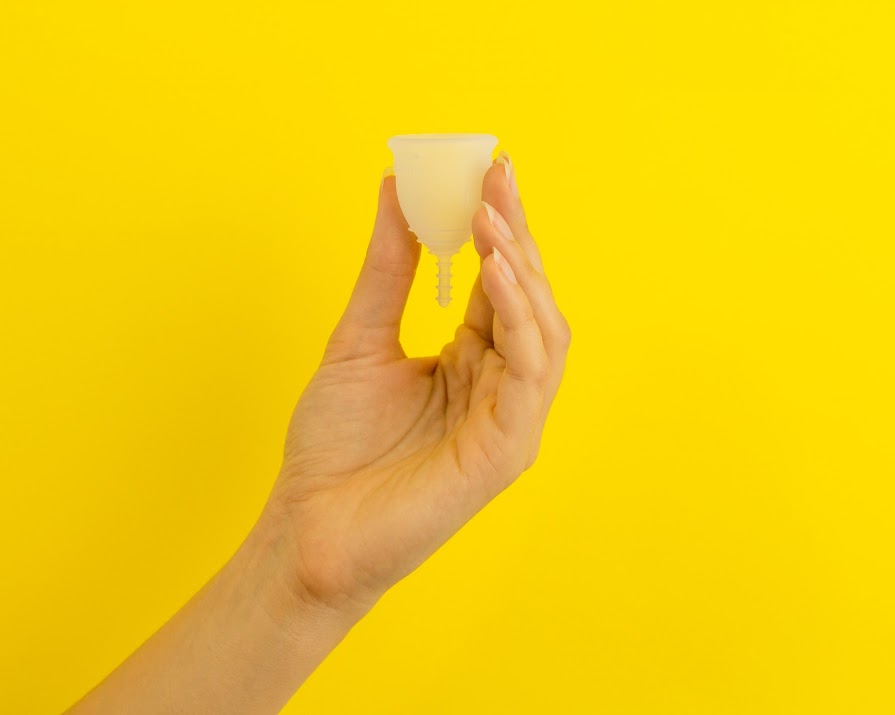Cycle tracking: how to biohack your menstrual cycle to bring flow (sorry) to your work

By Leonie Corcoran
03rd Nov 2022
03rd Nov 2022
Read time: 10 mins
Most of us think that being in that state of peak performance happens by accident, but what if we told you that by tracking your infradian rhythm, you could be in peak flow with “precision, predictability and reliability”? First up, we'll explain what your infradian rhythm is and why the masculine paradigm is impacting women's flow.
You’ve probably heard of your circadian clock, the 24-hour biological rhythm that is inherent to all of us – men and women, old and young. It is our internal sleep-wake timekeeper that we try not to meddle with given it directs many of our body’s processes – from levels of hormones in the blood and body temperature to metabolism and even reaction times.
Men’s testosterone production is organised around their circadian rhythm. Traditional, pre-Covid work-day patterns have been based on it for years, as are many one-size-fits-all “successful” morning routines which cram everything in before 9am.
These routines are based on the fact that male hormone patterns are the same each day – from highs in the morning, men run out of testosterone and cortisol every afternoon. Therefore, front-loading their physical, sexual, social and cognitive activities before 3pm is critical for their success. For women, however, energy has an altogether different flow thanks to another biological rhythm that accompanies our circadian rhythm – our infradian rhythm.
What is the infradian rhythm?
Women, from their first to their last menstrual cycle, are affected by their infradian rhythm. This monthly cycle governs six key systems of the body: the brain, metabolism, immune, microbiome, stress and reproductive systems. When it comes to our monthly cycle, women often talk about reproductive systems, but little space is given to the other systems, despite the fact that over the course of a month, the infradian rhythm creates a 25% change in a woman’s brain chemistry, explains Alisa Vitti, author, women’s hormone expert and founder of FloLiving.com, the world’s first menstrual healthcare platform.
Vitti highlights that over 47% of women struggle with hormones, over 90% of mothers say they feel “guilty” because they’re exhausted all the time; 40% of women feel rushed in their daily lives; and 60% are sexually unsatisfied. Why? Because, she writes, “most of us think that being in that state of peak performance happens by accident and that we have to take what we can get with our bodies and our lives”.
“As women, we believe that our bodies work against us and make it even harder to get into that peak state consistently.” In fact, she explains, we can be in peak flow with “precision, predictability and reliability”. Simply put, when we align with the science of our bodies, “we feel better, we work better, we mother better, and we have better sex”.
Critical to this science is our infradian rhythm, a recurring monthly cycle that we can bio-hack to ensure optimum health and wellbeing. Have you ever wondered why you relish brainstorming sometimes and find it so taxing at other times? Or why presenting to a (zoom) room full of women makes you jump out of bed one morning and straight back in another morning? That might just be your infradian cycle talking to you and now’s the time to listen up and start to make your feminine flow work for you. (Side note: This also impacts exercise regimes as Vitti points out, for example, HIIT workouts are only effective during the first half of your cycle, having the opposite effect after ovulation.)
The first thing to note is that despite our obsession with the ovulation and menstruation stages of our cycle, there are in fact four stages and due to the corresponding chemistry and hormone levels linked, each is suited to certain activities. Let’s look at them one-by-one…
The infradian rhythm creates a 25% change in a woman’s brain chemistry
Follicular Stage
When: The 7-10 days after your period ends.
Hormones & body: Reproductive hormones are at their lowest level during the first part of this phase. In the later part, oestrogen starts to increase; the lining of your uterus starts to thicken; and your ovaries get ready to release an egg. The overall hormonal effect on the brain is one of openness to new things, creativity and new beginnings. However, given there is no significant progesterone or testosterone, this means you can feel a little tired if your hormones are unbalanced, according to Vitti.
Ideal time for: planning, setting priorities, being creative, starting new projects, confidence, optimism, championing, having assertive conversations, partying and socialising.
Not ideal for: empathy, collaboration, going with the flow (given your higher energy and motivation, a slower pace by other team members can annoy you).
Exercise & social: Try something new to mix up your exercise routine and say “yes” to networking.
Food: According to Vitti, fresh, vibrant foods aid energy at this time such as veggies, lean proteins, kimchi, sprouted beans.
Ovulatory Stage
When: The 3-5 days in the middle of your cycle, right after the follicular phase and before the luteal phase.
Hormones & body: Oestrogen surges and luteinising hormone arrives to stimulate the release of an egg; the lining of the uterus gets thicker; testosterone surges and then quickly drops.
Ideal time for: communicating, collaborating, connecting, attracting, being “out there”, pitching and selling. This is a good time to plan conversations – tell everyone what you want. It’s a great time to ask for that raise you deserve.
Not ideal for: being logical or analytical, being alone.
Exercise & social: You’ve energy to burn!
Food: Vitti advises raw veggies and fruit to assist metabolising and eliminating surplus oestrogen, and lighter grains such as quinoa and corn.
Luteal Stage
When: The 10-14 days after ovulation, before your bleed.
Hormones & body: Oestrogen, testosterone and progesterone reach peak concentrations before they begin to begin to drop, hitting their lowest levels just before your period. The lining of the uterus continues to thicken with progesterone keeping it in place. During this phase, your metabolism also speeds up. Vitti highlights the need to eat more calories daily to maintain stable blood sugar, which helps balance insulin, a critical hormone that affects the degree of PMS you might experience (In her book , In The Flow, Vitti advocates strongly that PMS is not a given, but a symptom of hormonal imbalance).
Ideal time for: focus, decision-making, finishing projects, detail-oriented, putting order on things, tidying, clearing obstacles.
Not ideal for: teamwork, confrontation, understanding, working out problems. (Progesterone helps the body make cortisol, a hormone that tends to be higher in people who are stressed. Therefore, if cortisol levels are already elevated, the increase in progesterone can lead to you feeling more irritable.)
Exercise & social: During the first five days, you’ll still have energy and it’s a good time for strength training. In the second half of the phase, opt for gentler workouts that focus on flexibility. Socially, you have energy to spend with others early in the phase, with the focus shifting to taking care of yourself and being more inward.
Menstrual Stage
When: The 3-7 days during your bleed.
Hormones & body: The corpus luteum gets reabsorbed by the body; progesterone levels decline; and your uterus sheds the thick endometrial lining it has built up. Oestrogen hits its lowest point just before your bleed. The left (analytical) and right (feeling) hemispheres of your brain communicate the most during this time, which means it’s a great time to integrate how you feel about situations in your life and make decisions about how to proceed.
Ideal time for: reflecting, evaluating, resting, reading reports, digging into data, analysing financials.
Not ideal for: people pleasing, enthusiasm, decision-making, logic.
Food: During this intense period of menstruation, focus on foods that add nutrients. Vitti recommends proteins, fats, low GI veggies and fruits to keep blood sugar steady, while adding fibre and antioxidants. Seaweed can assist remineralising your body with iron and zinc, she says. It’s a great time for soups and stews.
Exercise & social: Energy will be at its lowest at the start of this phase so rest and focus on lighter exercises. When it comes to relationships, distance can make the heart grow fonder…prioritise taking some space for you!
Why is this new to so many women?
When I first learned about my infradian rhythm, I wondered how I’d reached my mid-30s without this knowledge. I asked friends and peers – aged from 17 to 70 – and found that it wasn’t just me that missed the memo. Vitti explains that medical research has omitted women for many years precisely because of our unique 28-day hormone cycle. “It has been perceived as too complex to control for all the hormonal shifts women go through every 28-days, so instead of trying to account for those fluctuations, researchers have just left women out and focused on men, whose predictable 24-hour circadian cycles do not vary from day to day.”
For more on this, read Maya Dusenbery’s book Doing Harm: The Truth About How Bad Medicine and Lazy Science Leave Women Dismissed, Misdiagnosed, and Sick, but for now what can you do with this new information about your infradian rhythm? Start tracking your cycle!
Vitti advises cycle tracking for a number of reasons, including keeping on top of symptoms (eg experiencing acne before ovulation is caused by different factors than during ovulation) so that you can support your hormones when needed, and learning to synch your cycle so that you start doing the right activities at the right time, instead of everything feeling like a fight. There are numerous apps out there for this, including Vitti’s MyFlo app (myflotracker.com) which includes cycle mapping, recipe prompts and scheduling reminders. Alternatively, marking your phases on a desk calendar (with Day 1 being the first day of your cycle for this purpose) and noting how you felt on each day; what went well; what didn’t; and how you supported your cycle in that phase through nutrition and activities can yield powerful insights after even just two or three cycles.
Though we can’t always arrange our days to fit with our phase, we can tip our hats in that direction, so this month, why not try to honour your feminine flow just a little bit more at each phase and see how it feels.
Leonie Corcoran is a certified coach (Neuroleadership Institute & One of Many), editor and writer. Through her 1:1 coaching, she enables women to find their authentic voice and a sustainable leadership style, professionally and personally. You can apply for a complementary Discovery Call at leococoaching.com or contact her on Twitter, Instagram or leonie@leococollective.com.























